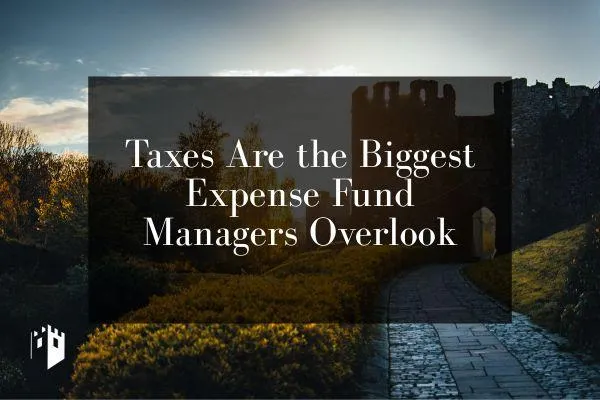
Taxes Are the Biggest Expense Fund Managers Overlook
Fund managers spend endless hours raising capital, structuring deals, and reporting to investors. They fight to reduce management fees and trim operating costs. But they miss the single largest expense on their P&L: taxes.
Most managers assume their CPA is handling it. In reality, most CPAs are box-checkers. They prepare returns. They don’t look forward. They don’t design structures that reduce tax burdens over time. That’s why so many smart, successful managers still overpay the IRS.
Why Fund Managers Overpay
Reactive CPAs. By the time you hand your return to a traditional CPA in February, the window for strategy has closed. You’re looking backward, not forward.
Missed Structuring Opportunities. The wrong entity choice can expose you to higher self-employment taxes, missed pass-through deductions, and limited ability to allocate depreciation.
No Integration Across Advisors. Most CPAs never coordinate with your attorneys, lenders, or wealth managers. The result: documents that look fine legally but create unnecessary tax exposure.
Failure to Maximize Depreciation. Fund managers often miss outsized allocations of year-one depreciation because their documents weren’t structured to allow it. That’s real money left on the table.
What a Strategic Approach Looks Like
When we review a fund manager’s tax position, we start with questions most CPAs never ask:
Do your fund docs allow you as GP to capture the right share of depreciation?
Is your debt fund classified correctly to avoid unnecessary net investment income tax?
Are you reserving for state-level taxes at disposition so you don’t get blindsided later?
Have you made elections, such as grouping, that can free up hundreds of thousands in deductions?
These questions matter because the IRS will not point you toward savings. And most CPAs don’t have the private equity and fund management experience to even know what to look for.
The Real Cost of Overpaying
Every year you wait to fix this, you don’t just lose money to the IRS. You lose the compounding effect of keeping that capital in play. Whether reinvested into new deals or distributed to LPs, those dollars grow faster in your hands than in Washington’s.
For fund managers, the cost of a box-checker CPA isn’t just higher taxes. It’s lost credibility with investors. It’s distributions that could have been larger. It’s deals that could have been structured smarter.
Take Action Before Year-End
We are in September. There is still time to make changes that impact your 2025 return. But by November, many strategies will be out of reach.
At Stonehan, we don’t prepare tax returns. We build tax battle plans. We look at prior returns, entity structures, and fund documents, then design strategies to reduce liability today and position you for long-term growth.
If you are serious about reducing your largest expense, the time to act is now.
Book Your Tax Strategy Session
